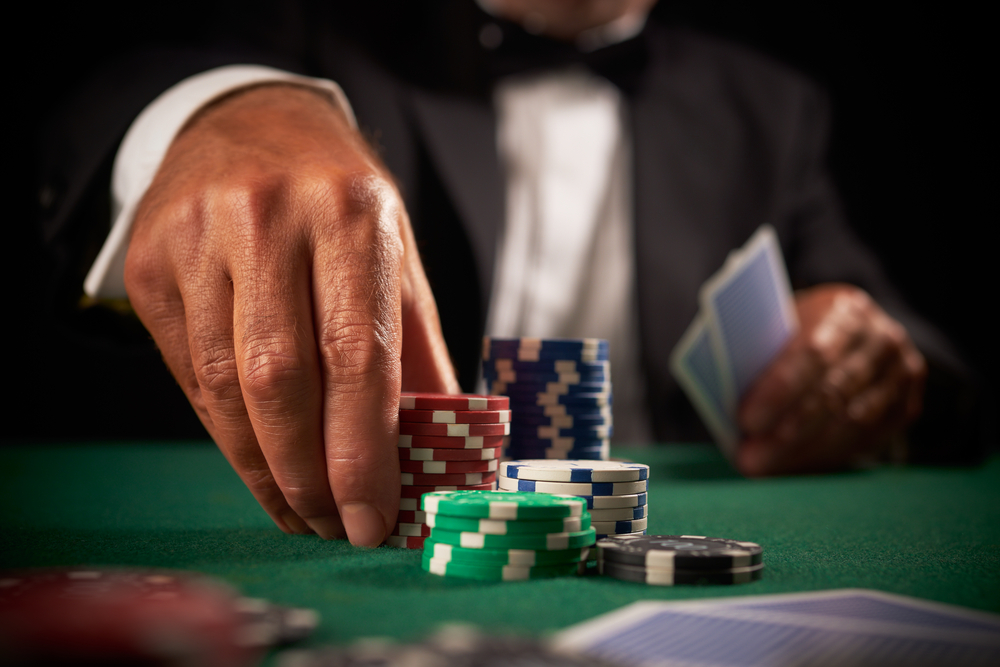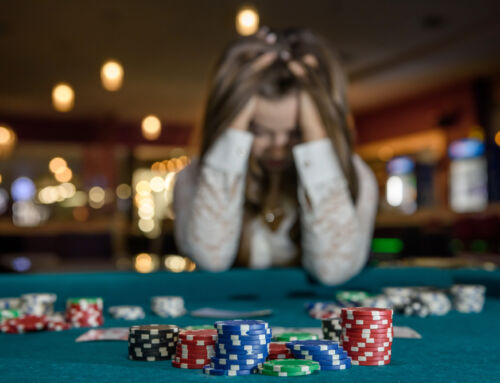Have you ever lost a bet? Or won? With the dawn of legal sports betting, gambling’s popularity has skyrocketed—hopes of winning big are just one click away. But behind the thrill lies a deeper question: Is the allure of gambling merely harmless fun or a risky gamble with real-life consequences?
Like many common risky behaviors, gambling is not inherently harmless or harmful; its impact largely depends on various individual factors. For some, it is a form of recreation, while for others, it can lead to addiction and financial or emotional distress. So, what makes gambling good for some or bad for others?
Positive Effects of Gambling
An increase in gambling has led to an increase in awareness of its potential positive impact on individuals and communities.
Legal gambling establishments, like casinos, often serve as hubs of entertainment, social interaction, and economic growth. Through responsible gaming practices and regulation, legal gambling can fund education and infrastructure, promote tourism, and create employment opportunities.
Revenue
Gambling can generate significant revenue for specific regions through taxes and tourism. According to the American Gaming Association, commercial gaming revenue in the United States reached $60.42 billion in 2022, representing a 13.9% increase over 2021. This increase is in part due to the expansion of legal sports betting and iGaming.
Further, in 2023, commercial gaming operators contributed $14.42 billion in taxes to local and state governments solely from gaming revenue. This revenue can fund public services such as education (e.g., gambling research), healthcare, and infrastructure development.
Casinos and gambling venues also generate tourism. For instance, Las Vegas, Nevada, is one of the most visited places in the United States, specifically because of its history of casinos and gambling. Tourism also accounts for an increase in revenue in popular cities.
Jobs
In areas where gambling is legal, casinos and associated businesses can stimulate economic growth by attracting visitors, increasing demand for local goods and services, and, therefore, fostering entrepreneurship.
As a result, the gambling industry creates jobs in multiple industries, which include hospitality, entertainment, tourism, and administration. Overall, the United States gambling industry employs more than 1 million people.
Regions with casinos, racetracks, or other gaming establishments create a wide range of jobs. Some thriving regions include:
- Las Vegas, Nevada, USA
- Atlantic City, New Jersey, USA
- Macau, China
- Biloxi-Gulfport, Mississippi, USA
- Singapore
- Monte Carlo, Monaco: Home to the famous Casino de Monte-Carlo
Fun and Excitement
Neuropsychologically speaking, the brain recognizes rewarding or fun experiences. These experiences activate dopamine, which motivates a person to engage in that behavior again. Of course, more fun means more dopamine and more behavior. In other words, dopamine uptake in certain parts of the brain influences reward-related circuitry and may produce positive effects, like greater excitement among individuals who gamble (Clark et al., 2013).
This neurobiological action happens with anything experienced as fun, thrilling, or generally positive. Research also shows that sensory or reward-related stimuli (e.g., casino lights and sounds) can be learned cues that signal a reward might be coming; think of Pavlov ringing the bell before offering a dog food. If gambling is rewarding and fun for someone, cues related to gambling create an exciting environment for individuals who gamble and enhance the likelihood of gambling (Cherkasova et al., 2018).
Additionally, people gamble not just for the thrill but also for the possible reward of winning money. The possibility of winning money means potentially solving financial demands or problems, or purchasing something previously unobtainable.
Lastly, for some individuals, gambling provides an opportunity for socialization and connection with others in a fun and exciting environment.
Negative Effects of Gambling
While gambling can offer fun entertainment and economic benefits, it is essential to acknowledge its potential adverse effects. Beyond the allure of jackpots and flashing lights lies a darker reality: problem gambling, financial strain, and social repercussions that harm individuals and communities.
Mental Health Effects

Coping
Gambling may be fun and exciting due to the behavior being a way to escape negative or challenging aspects of a person’s life. We tend to engage in activities that help us regulate negative emotions. So, individuals may gamble to cope with boredom, sadness, loneliness, anxiety, and stress or situations like problems with work, family, relationships, and financial strain.
Anxiety and Depression
Research has shown that gambling problems commonly lead to an increase in depression and anxiety, as well as experiencing physical stressors. Additionally, those with a gambling problem may use gambling as a coping mechanism for depression and anxiety.
Therefore, the relationship between gambling and anxiety/depression is multifaceted, with each exacerbating the other in a vicious cycle. The act of gambling can create a cycle of highs and lows, as winning can temporarily boost mood and self-esteem, but subsequent losses can lead to feelings of guilt, shame, and despair, further perpetuating the cycle.
Because it is cyclical, it is difficult to pinpoint what factors contribute to mental health problems in those with gambling problems. Seeking professional help and accessing support resources is essential for individuals experiencing these challenges. Since anxiety, depression, and gambling addiction often co-occur, simultaneously addressing all these disorders is crucial for effective treatment and recovery.
Cognitive Distortions
Due to the fast-processing speed of the human brain, individuals may see connections between experiences that might not be real. Ideas, like hot machines and lucky charms, lead us to link two causally unrelated things and mistakenly believe we can predict what will occur. This phenomenon is called cognitive distortion.
Gambling cognitive distortions are a psychological feature of gambling that may contribute to developing and continuing engagement in harmful gambling (Goodie et al., 2019). Specifically, gambling cognitive distortions refer to the irrational beliefs about an individual’s gambling behavior, such as overconfidence in skills or illusion of control, which consequently influence gambling engagement despite gambling losses (Raylu & Oei, 2004; Steenbergh et al., 2002).
Financial Impact
One significant difference between gambling disorder and other addictive behaviors is the direct negative financial consequences. While substance use disorders like alcohol or drug misuse can also lead to financial strain, gambling disorder uniquely involves the loss of money as a central component.
On an individual level, approximately 19% of individuals with problem gambling behavior file for bankruptcy as a direct result of problem gambling behavior.
On a community level, the increased demand for healthcare services to address these issues can strain healthcare systems and lead to higher healthcare costs for individuals, employers, and governments.
According to the National Council on Problem Gambling, the estimated national social cost of problem gambling is $14 billion annually. This cost includes job loss, healthcare services, criminal justice, bankruptcy, and more.
What Are the Odds of Winning at Gambling?
According to a study of 4,222 gamblers, only 13.5% leave a casino with any winnings. Out of those, just seven walked away with more than $150, while 217 ended up losing over $5,000. The more frequently people gamble, the slimmer their chances of winning, deepening their financial losses, and reinforcing the cycle of addiction.
Relationships
Problem gambling behavior is linked to discord in interpersonal relationships, where approximately six individuals are directly affected by an individual with problem gambling behavior (Fong et al., 2005; Goodwin et al., 2017; Hing et al., 2022; Koomson et al., 2022; Lorains et al., 2011; Stevens et al., 2019).
Individuals who are experiencing problem gambling behavior may try to conceal or hide the severity of their gambling from family, significant others, and friends, thus resulting in discord in interpersonal relationships. For example, individuals may withdraw from social activities to spend more time gambling, leading to feelings of loneliness and alienation. Further, social isolation and strained relationships are known risk factors for anxiety and depression.
Research shows that partners of individuals with problem gambling behavior experienced a wide range of negative effects (Holdsworth et al., 2013). Partners revealed that gambling-related debt contributed to a loss of savings, homes, belongings, and established ways of living. In addition, partners reported that concealment of problem gambling behavior created distress and loss of trust, which for many resulted in separation or divorce (Holdsworth et al., 2013).
Supporting Someone You Love With a Gambling Addiction
Loving someone with a gambling problem can be incredibly hard. You might feel angry, heartbroken, confused—or all of the above. Maybe you’ve noticed money going missing, or they’ve pulled away from family life. Maybe it feels like you don’t even recognize them anymore. These feelings are real, and you’re not alone.
While you can’t fix the problem for them, you can support them—and take care of yourself in the process. Here are a few ways to start:
- Learn what gambling addiction is. It’s more than just “bad choices.” Problem gambling can affect how someone thinks, feels, and copes with stress. Understanding it can help you feel less frustrated and more grounded in what’s really going on.
- Set boundaries that protect you. It’s okay to say no to lending money or covering debts. Boundaries aren’t about being harsh—they’re about keeping yourself safe and making space for healthy change.
- Talk to them, not at them. Try to share how their behavior impacts you using “I” statements, like: “I feel scared when I don’t know where the money went,” instead of “You’re ruining everything.” It creates less defensiveness and more room for honesty.
- Encourage them to seek help. Whether or not they’re ready, letting them know that support exists—and that recovery is possible—can plant a powerful seed.
Setting Financial Boundaries
When you share finances with someone who has a gambling addiction, setting clear financial boundaries is crucial to protect yourself—and your financial future. Here are some key steps to take:
- Separate finances if possible: If you haven’t already, consider opening a separate bank account to keep your personal finances safe. This can prevent your partner’s gambling behavior from impacting your savings, bills, or credit.
- Don’t cover debts or gambling losses: It can be tempting to “help” by covering debts or gambling-related losses, but this often enables the addiction and prolongs the cycle. Instead, encourage your partner to seek help, and protect your own financial stability by being firm about not lending money for gambling-related needs.
- Set a clear budget together: If you do need to continue sharing finances, agree on a strict budget that both of you can stick to. Having transparency around money can reduce stress and avoid conflicts about spending, especially when gambling is involved.
- Consult a financial advisor: If the situation feels overwhelming, a financial advisor or counselor can help you navigate shared finances and protect your assets in the long run.
Financial boundaries are an essential step in maintaining your own security while encouraging your loved one to seek the support they need. Remember, you deserve peace of mind, and your finances should reflect that.
Understanding Problem Gambling
Gambling can be a fun and exciting way to spend time—but for some people, it can start to become more than just entertainment. When gambling begins to negatively affect your life, it may be a sign of problem gambling, also known as compulsive gambling or gambling addiction. This can take a serious toll on your mental health, relationships, and finances. Knowing what to look for is the first step toward getting help.
Signs of Problem Gambling
- You might be experiencing problem gambling if you:
- Spend more money on gambling than you can afford to lose
- Gamble when you should be working, spending time with loved ones, or doing other responsibilities
- Feel anxious, guilty, or stressed about your gambling
- Use gambling to escape from problems or tough emotions
- Hide your gambling from friends or family
- Borrow or steal money to keep gambling
These patterns can create a cycle where the temporary excitement of winning is followed by deep lows—feelings of guilt, shame, and regret. It’s important to know that you’re not alone, and help is available.
Gambling is a Personal Choice
The decision to gamble is personal, as adults can weigh individual factors like preference, values, and circumstances. For some, gambling may provide entertainment, socialization, and the possibility of financial gain, while others may choose to abstain due to personal beliefs or concerns about potential negative consequences.
At the same time, it is essential to acknowledge that gambling is an activity that carries inherent risks, including the potential for addiction, financial loss, and social harm. While some individuals may have no problem gambling responsibly, others may struggle with compulsive behavior that manifests in gambling and negatively affects themselves and those around them.
From a societal perspective, gambling activity regulation plays a significant role in balancing personal freedoms with the need to protect vulnerable individuals. By implementing measures such as age restrictions, responsible gambling initiatives, and support services for problem gamblers, communities can strive to minimize harm while still allowing for individual choice and enjoyment.
How to Gamble Responsibly
Understanding the odds of winning, setting realistic expectations, and recognizing the signs of problem gambling are vital aspects of responsible gambling. Further, individuals should use tools to minimize the risk of problem gambling behavior and gambling harm.
- Set Limits: Responsible gamblers set clear limits on their gambling behavior, including limits on time spent gambling, money spent, and frequency of participation. Setting and sticking to these limits can help prevent excessive gambling and mitigate the risk of financial harm.
- Budget: Responsible gambling requires creating a gambling-specific budget based on disposable income and financial priorities. This tactic involves allocating a specific amount of money for gambling purposes and refraining from chasing losses or exceeding the established budget.
- Avoid Gambling While Under the Influence: Gambling while under the influence of alcohol or drugs can impair judgment and increase the likelihood of making poor decisions. Responsible gamblers avoid gambling when intoxicated to ensure that they can make rational choices and maintain control over their behavior.
- Seek Help When Needed: Recognizing signs of gambling behavior and seeking help early on is essential to minimize gambling harm. Seek help from resources available for individuals experiencing problem gambling behavior, including helplines, support groups, and mental health treatment programs.
Help with Gambling Habit
If you need help with problem gambling, here is a list of resources that provide services to those who need them.
The National Council on Problem Gambling Helpline (NCPG)
The NCPG has a 24-hour toll-free and confidential National Problem Gambling Helpline Network. The network consists of both the phone helpline and ways to chat or text with NCPG representatives as well:
- Call: 1-800-GAMBLER (1-800-426-2537)
- Text: 800GAM
- Chat: www.1800gamblerchat.org
The NCPG website also includes state-by-state information about how to find programs for individuals with problem gambling behavior programs and treatment facilities, screening tools, and information for both gamblers and gambling providers about responsible gambling.
Gamblers Anonymous
Gamblers Anonymous is an organization that provides access to support groups and other forums among individuals who are experiencing problem gambling behavior. The organization requires no fees or other costs, explaining that its “only requirement for membership is a desire to stop gambling.” Among the methods employed by the organization is a 12-step recovery program similar to the model used by Alcoholics Anonymous.
GamTalk
GamTalk is an online community that assists individuals who are experiencing problem gambling behavior with a 24/7 online peer support program.
The Gambling Clinic®: Gambling Addiction Treatment in Tennessee
The Gambling Clinic® specializes in providing one-on-one, evidence-based cognitive behavioral therapy. The clinic also offers a flexible approach that can accommodate an individual’s goals, whether that may be gambling abstinence or a reduction in current levels of involvement. We serve people across all of Tennessee, with offices in Memphis, Nashville, and Johnson City, and we also offer telehealth sessions for added convenience and accessibility.
An anonymous online test can help you evaluate your gambling habits.
Educational resources that are accessible, engaging, and evidence-based.
For free and confidential phone consultations, including the loved ones of those who struggle with gambling:
Call: 833-TGC-TN00
Email: tgc@memphis.edu
How Cognitive Behavioral Therapy (CBT) Can Help with Gambling Addiction
When gambling starts to feel out of control, it can be hard to know where to turn. One of the most effective and widely used treatments for gambling problems is Cognitive Behavioral Therapy, or CBT. It’s a practical, goal-oriented approach that helps people understand how their thoughts, feelings, and behaviors are connected—and how to make meaningful changes.
Many people with gambling problems develop patterns of thinking that keep them stuck, like believing they can “win it back” or that gambling is the only way to feel relief from stress, anxiety, or boredom. CBT helps identify and challenge those unhelpful beliefs. It also teaches new strategies for managing urges, solving problems, and handling uncomfortable emotions in healthier ways.
Another strength of CBT is its flexibility. It can be tailored to your personal goals—whether that’s stopping gambling altogether or learning how to reduce the harm it causes in your life. It also supports broader recovery by helping people rebuild routines, strengthen relationships, and improve their overall well-being.
CBT doesn’t just treat the symptoms—it helps people take back control, make lasting changes, and move toward a more balanced, fulfilling life.
Works Cited
Cherkasova, M. V., Clark, L., Barton, J. J. S., Schulzer, M., Shafiee, M., Kingstone, A., Stoessl, A. J., & Winstanley, C. A. (2018). WIN-concurrent sensory cues can promote riskier choice. Journal of Neuroscience, 38(48), 10362–10370. https://doi.org/10.1523/jneurosci.1171-18.2018
Clark, J. J., Collins, A. L., Sanford, C. A., & Phillips, P. E. (2013). Dopamine encoding of Pavlovian incentive stimuli diminishes with extended training. Journal of Neuroscience, 33(8), 3526–3532. https://doi.org/10.1523/JNEUROSCI.5119-12.2013
Fong, T. W. (2005). The biopsychosocial consequences of pathological gambling. Psychiatry (edgmont), 2(3), 22-30.
Goodie, A. S., Fortune, E. E., & Shotwell, J. J. (2019). Cognitive distortions in disordered gambling. Gambling disorder, pp. 49–71. https://doi.org/10.1007/978-3-030-03060-5_4
Goodwin, B. C., Browne, M., Rockloff, M., & Rose, J. (2017). A typical problem gambler affects six others. International gambling studies, 17(2), 276–289. https://doi.org/10.1080/14459795.2017.1331252
Hing, N., Lole, L., Thorne, H., & Rockloff, M. (2023). NSW Youth Gambling Study 2022.
Koomson, I., Churchill, S. A., & Munyanyi, M. E. (2022). Gambling and financial stress. Social Indicators Research, 163(1), 473–503.
Holdsworth, L., Nuske, E., Tiyce, M., & Hing, N. (2013). Impacts of gambling problems on partners: Partners’ interpretations. Asian Journal of Gambling Issues and Public Health, 3, 1-14. https://doi.org/10.1186/2195-3007-3-11
Lorains, F. K., Cowlishaw, S., & Thomas, S. A. (2011). Prevalence of comorbid disorders in problem and pathological gambling: Systematic review and meta‐analysis of population surveys. Addiction, 106(3), 490–498.
Raylu, N., & Oei, T. P. (2004). Role of culture in gambling and problem gambling. Clinical psychology review, 23(8), 1087-1114. https://doi.org/10.1016/j.cpr.2003.09.005
Steenbergh, T. A., Meyers, A. W., May, R. K., & Whelan, J. P. (2002). Development and validation of the Gamblers’ Beliefs Questionnaire. Psychology of addictive behaviors, 16(2), 143. https://doi.org/10.1037/0893-164X.16.2.143
Stevens, M., Gupta, H., & Flack, M. (2019). Northern Territory Gambling Prevalence and Wellbeing Survey Report, 2018. Menzies School of Health Research. https://industry.nt.gov.au/__data/assets/pdf_file/0010/959176/2018-nt-gambling-prevalence-wellbeing-survey.pdf








